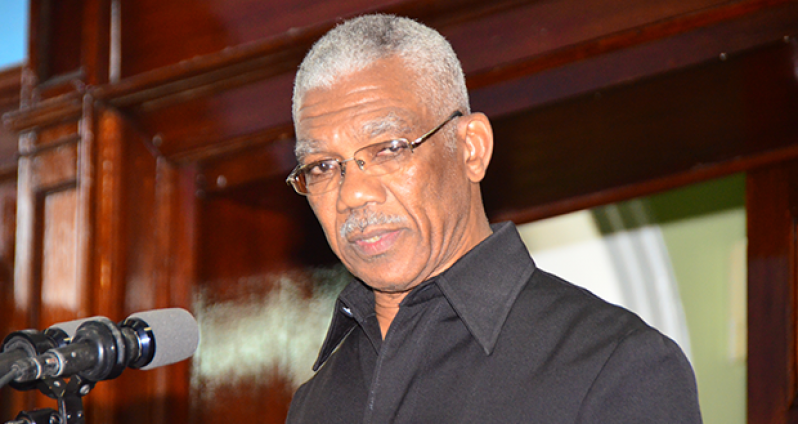GUYANA’S President David Granger will make his debut appearance at this week’s annual Heads of Government Conference of the Caribbean Community (CARICOM) amid growing impatience over lack of significant progress to transform the 42-year regional integration movement into the long promised Single Market and Economy (CSME).
As a former Brigadier of the Guyana Defence Force, when he was often part of presidential ceremonial delegations, the 69-year-old Head of State is also known to have more than an academic interest in regional and international affairs.
He would, therefore, be expected to reflect some of his own concerns about the way forward for CARICOM, if not in his opening address during the working sessions over the three days of summitry politics in Barbados starting on Thursday, July 2.
The President is going to the CARICOM summit at a time when his less than month-old coalition Government, which has a one-seat parliamentary majority in the 65-member National Assembly, is on the alert over a just-granted permission by acting Chief Justice Ian Chang for the Opposition People’s Progressive Party to challenge the validity of the officially declared results of last month’s national and regional elections.
The petition was filed by the PPP’s executive member and former Attorney General, Anil Nandlall who had earlier released correspondence with the Guyana Elections Commission challenging a series of claimed irregularities in the conduct of the elections including counting and verification of the declared results.
The laws requires the court’s prior permission before the formal filing of such a petition and the Opposition PPP has indicated that this process was being pursued as “a priority” while the party remains engaged in keeping CARICOM abreast of ‘relevant’ developments in Guyana…”
Meanwhile, in Barbados, host Prime Minister Fruendel Stuart, has been reminded in a statement from former three-time head of government, Owen Arthur, about some of the challenges to be faced, nationally and regionally, in order to inspire confidence in CARICOM’s future.
CUT THE ‘PAUSE’
Arthur recalled that instead of vigorously moving forward, as advised by experts committed to regional economic integration and functional co-operation, the Community’s leaders chose in recent years to put the CSME on a “pause” mould. However, the passage of time and submission of new reports by distinguished regional and international experts have reminded why the Region’s governments, including Barbados’ can no longer afford to “duck” from the challenges to be faced.
For instance, according to Arthur, an Economist by profession, who had lead responsibility for the CSME while in office, the challenges involved in the Region’s “high indebtedness” would be among priorities to be addressed. That discussion will surface when the politicians and technocrats settle down to examine recommended initiatives from a top-level Caribbean Commission.
How they achieve progress in their deliberations would very much depend on new efforts to move away from a regressive “pause mood” on advancing the CSME. They need to ‘cut the pause’
DOMINICAN REPUBLIC’S ‘RACE’ DISCRIMINATION
However, apart from addressing imperatives on the CSME work agenda as well as functional cooperation issues – such as regional air transportation – although some progress seems to have been achieved on the irritating hassle-free immigration front – there remains for urgent relevant action on social/political issues.
Foremost, at this time, seems to be the lingering, arrogant determination by The Dominican Republic (DR) to ignore a deepening crisis involving inhumanes race-based discrimination against thousands of black Dominicans.
The victims are citizens of Haitian origin – by birth, residence and work. At least 200,000 of them are currently facing deportation because they are not in possession of new travel documents, under a controversial law that makes it extremely difficult and impractical to obtain for them to freely leave and return to the DR.
The Prime Minister of St. Vincent and the Grenadines, Dr. Ralph Gonsalves, who initially became personally involved back in 2013 in engaging the Government of the DR to make necessary adjustments to the law, but like CARICOM governments and human rights and other civil society organisations, has deemed this latest ordeal facing DR citizens of Haitian origin as ”simply unacceptable…”.
He would be among CARICOM leaders expected for next week’s summit in Barbados.
(Rickey Singh is a noted Guyana-born Caribbean journalist, based in Barbados)
Analysis by Rickey Singh



.jpg)








